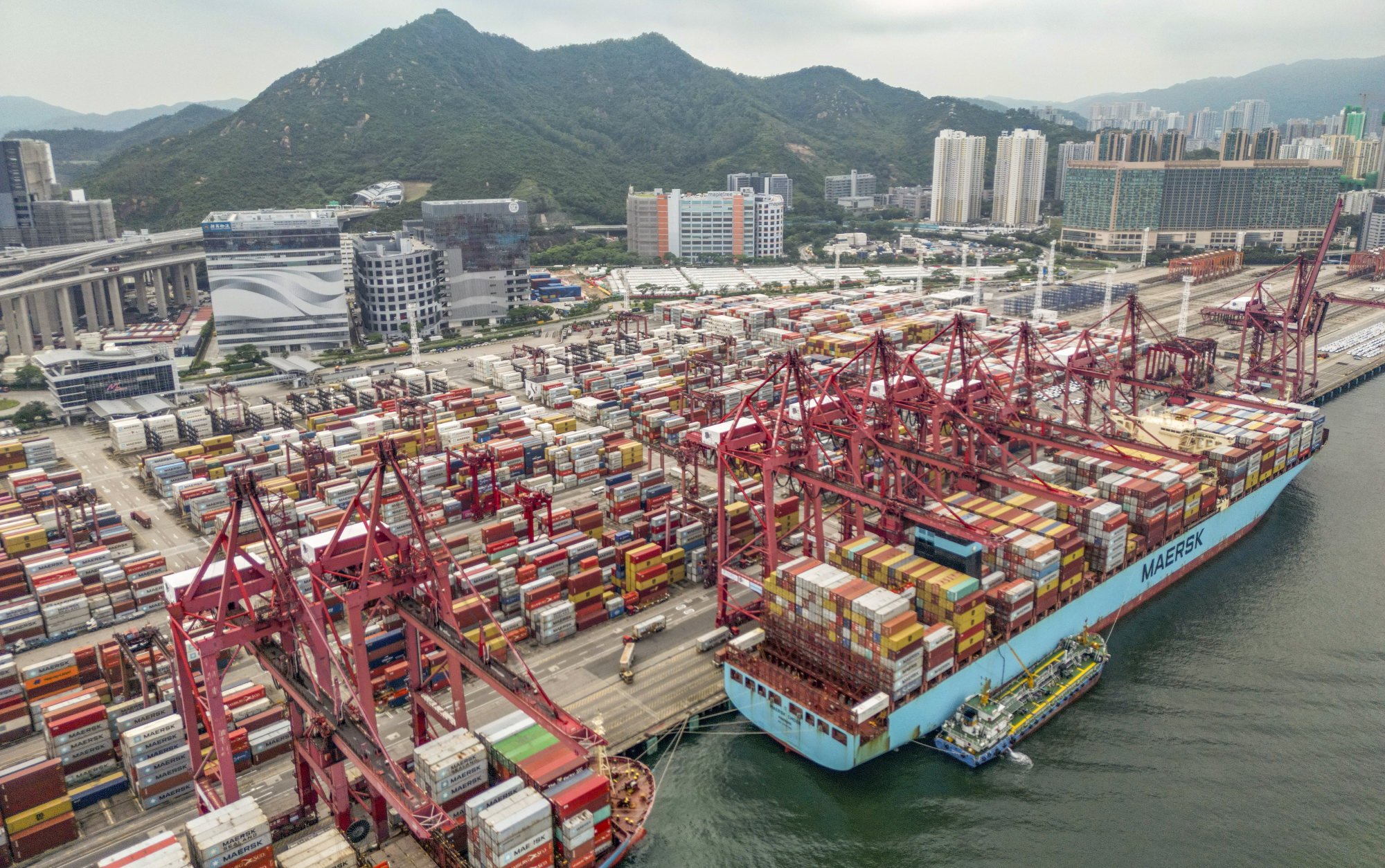
Hong Kong economic woes continue as exports fall 15th month in a row with a 9% decline
- Trade with mainland China, the United States and Europe all stay on downward trend
- The value of goods sold abroad drops to HK$345.2 billion in July, a trade deficit of HK$30 billion for the month
Hong Kong exports stayed on a downward trend for the 15th month in a row with a fall of more than 9 per cent year on year in July as the contraction in trade with mainland China, the United States and Europe continued.
The value of goods sold abroad dropped to HK$345.2 billion (US$44 billion) in July and imports were down 7.9 per cent to HK$375.1 billion, a trade deficit of HK$30 billion for the month, the Census and Statistics Department revealed on Thursday.
The last time Hong Kong saw a 15-month contraction in exports was in 2015-16.
Weak overseas demand weighed on the city’s economic recovery that recently forced the government to narrow its full-year gross domestic product forecast by 1 percentage point to 4-5 per cent in 2023 from the previous 3.5-5.5 per cent.

A government spokesman said the city’s exports to mainland China, the US and EU all declined and those to major Asian markets also went down in varying degrees.
“Looking ahead, the difficult external environment will continue to weigh on Hong Kong’s exports performance in the near term. The government will monitor the situation closely,” he added.
Exports slumped by 14.6 per cent in the first seven months of the year and imports also decreased, down 12.5 per cent.
Exports to the mainland, the city’s largest trade partner, were down 15.2 per cent year on year in July.
Decline in Hong Kong exports to major markets paints grim economic picture
The fall in non-Asian markets was led by Germany, down by 22.5 per cent, followed by the US, which recorded a decrease of 5.8 per cent.
Asian markets, such as the Philippines, Malaysia, South Korea and Japan, also recorded a fall in exports from the city of between 13.2 per cent and 29.6 per cent year on year.
Hong Kong logs 1.5 per cent growth in second quarter amid sluggish economic recovery
Office and automatic data processing machines, major export products, logged the largest fall – 19 per cent in July compared with the same month last year.
Nick Marro, global trade lead at the Economist Intelligence Unit, attributed the protracted decline in global trade to shifting demand for electronics. He said people no longer stayed at home after they returned to post-Covid normality, so demand had been hurt.
He noted that supply chain disruptions led companies to front-load orders to prevent delays in critical components and products necessary for their operations, resulting in them stocking up inventory.
“High levels of inventory mean that there has not been demand for new goods and that depressed trade as a result. That’s the story we’re seeing for Hong Kong and mainland China, but also economies in the region like South Korea and Asean as well,” he said, referring to the 10-member Association of Southeast Asian Nations.
“That’s really affecting all of the region and Hong Kong is not immune to it.”
He noted an improvement in Hong Kong and Asian trade was unlikely until the fourth quarter this year at the earliest.
“Then we’re expecting inventory levels to begin to fall, creating a bit more space for demand to come back online,” he said.
Gary Ng Cheuk-yan, senior economist at Natixis Corporate and Investment Bank, said the export figures reflected the pressure from elevated global interest rates, the slow recovery of the mainland economy and a lengthened destocking cycle.
“None of these factors will change any time soon and the trade figures may not bottom out until November,” he said.
“A weak trade environment as such does not bode well for Hong Kong’s economy at a time when it is about to exhaust its cyclical rebound momentum, which will limit growth to around 4 per cent in 2023.”

